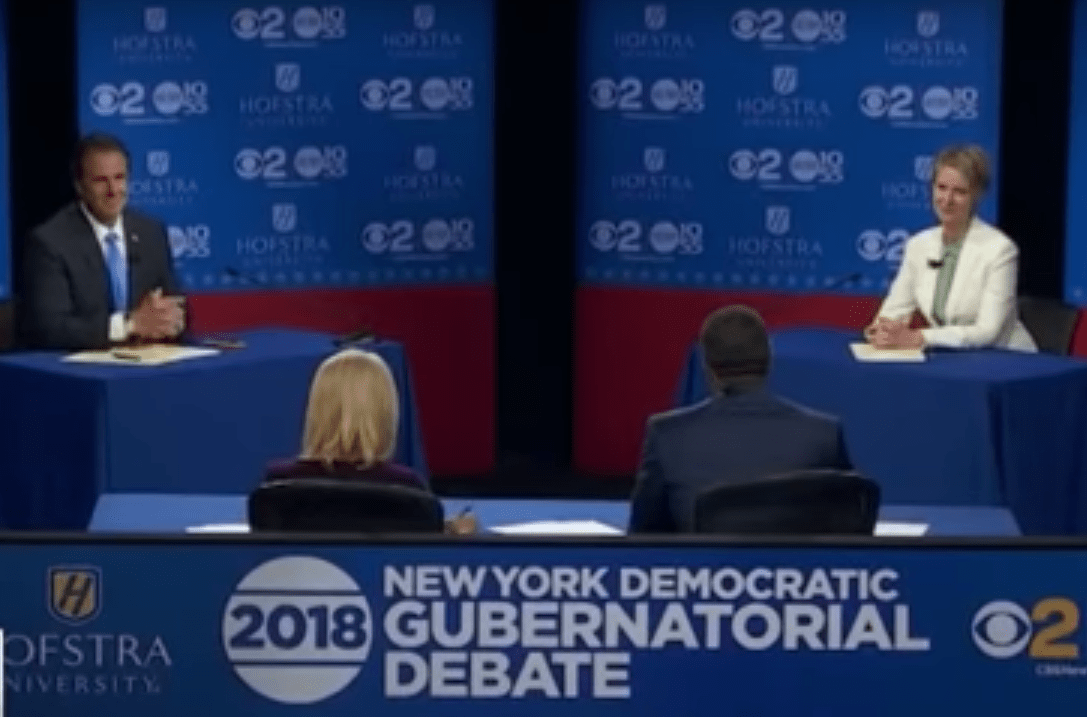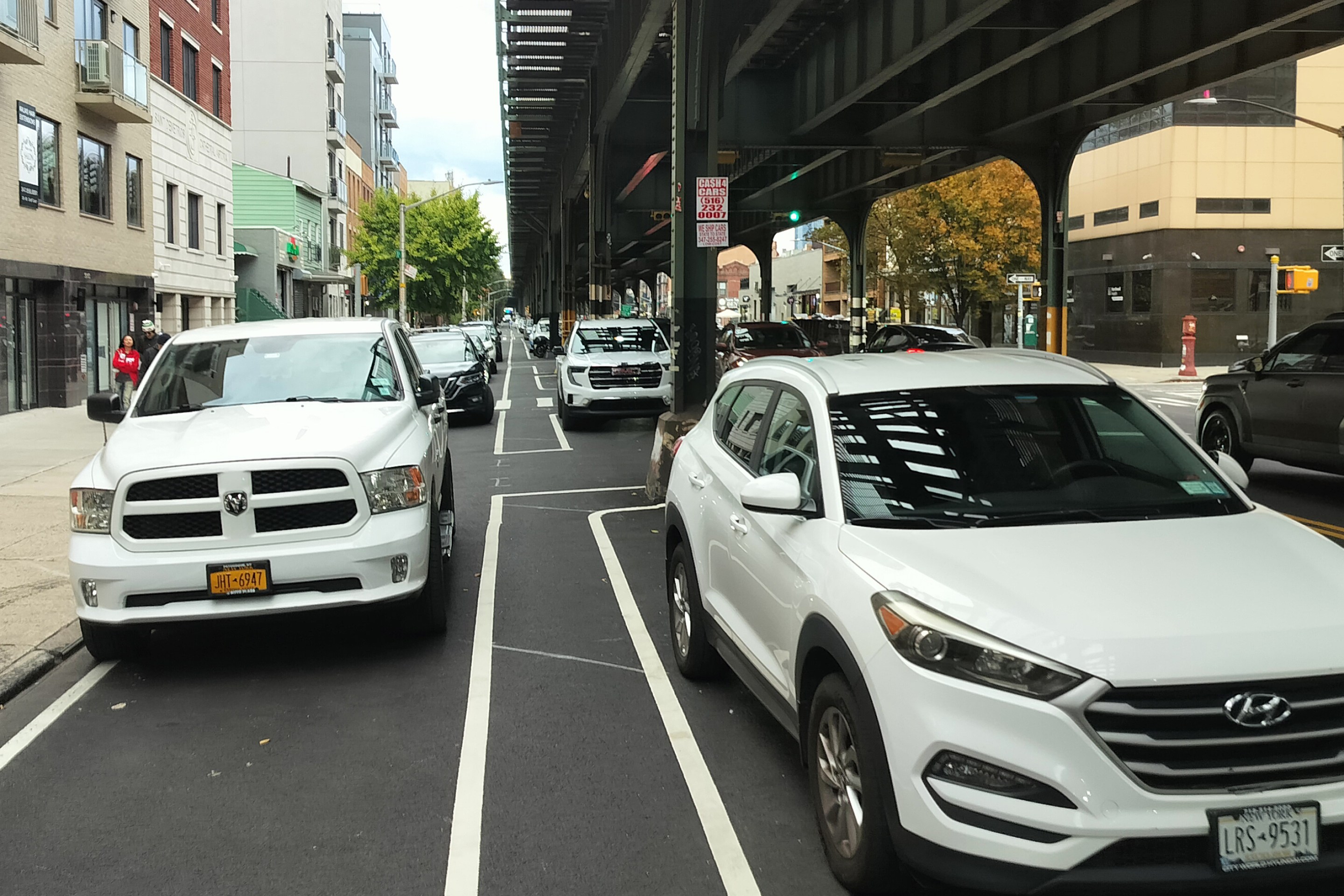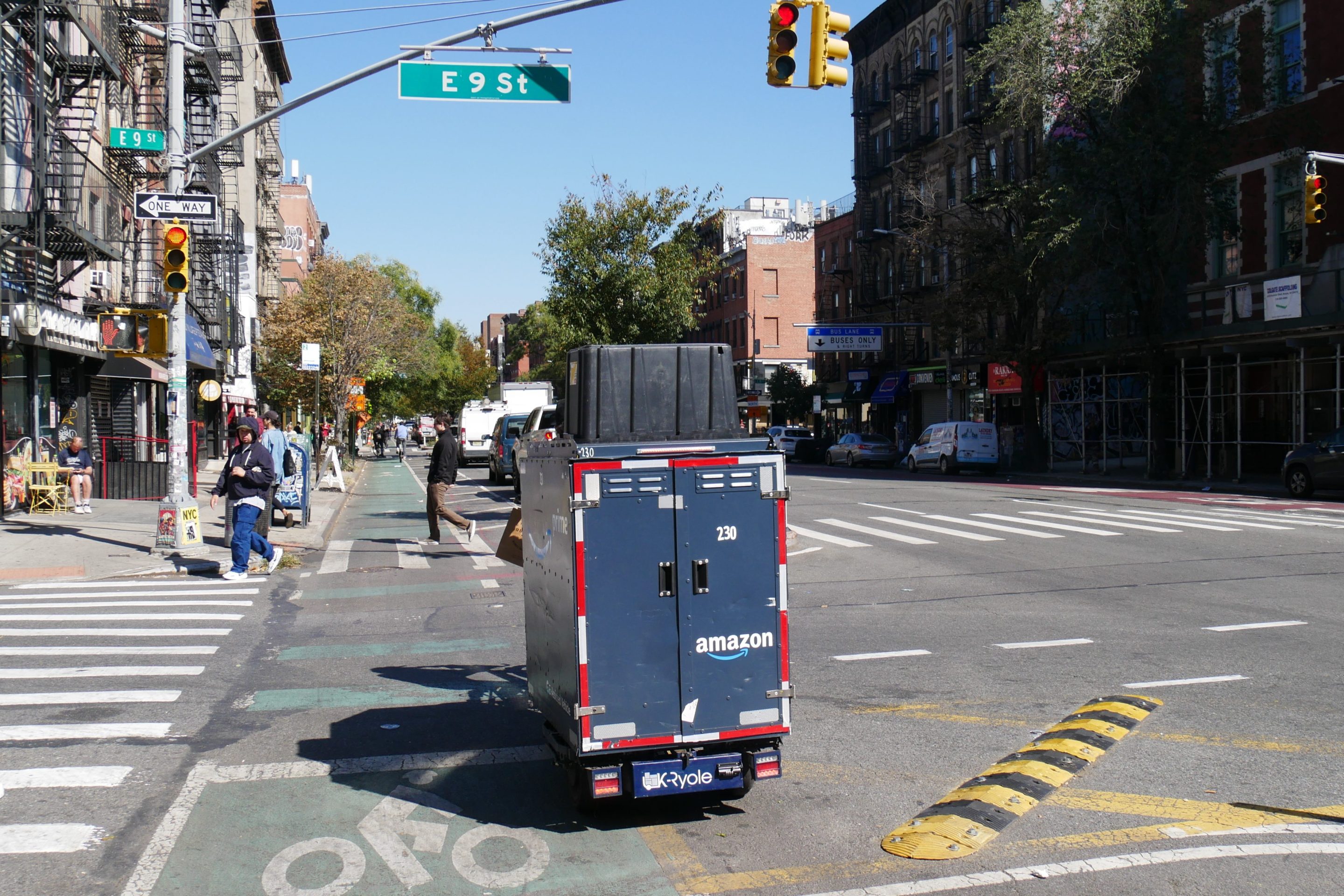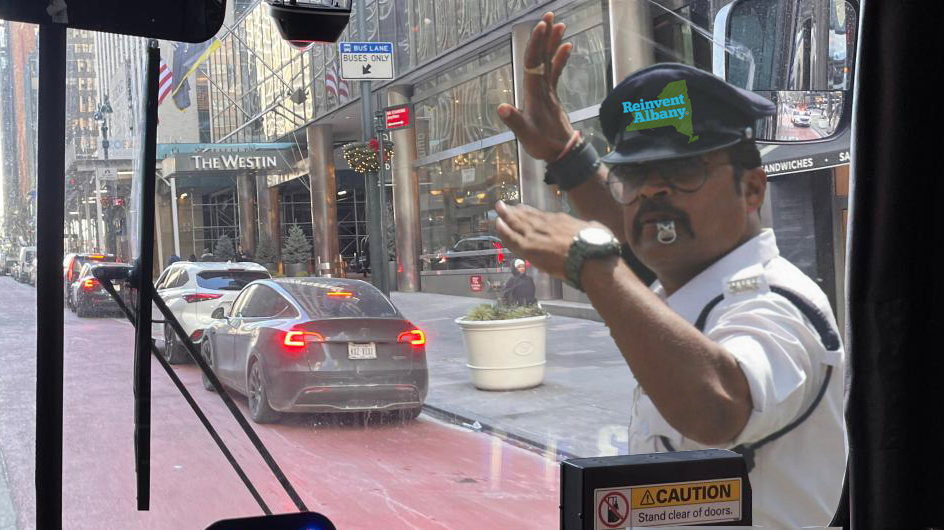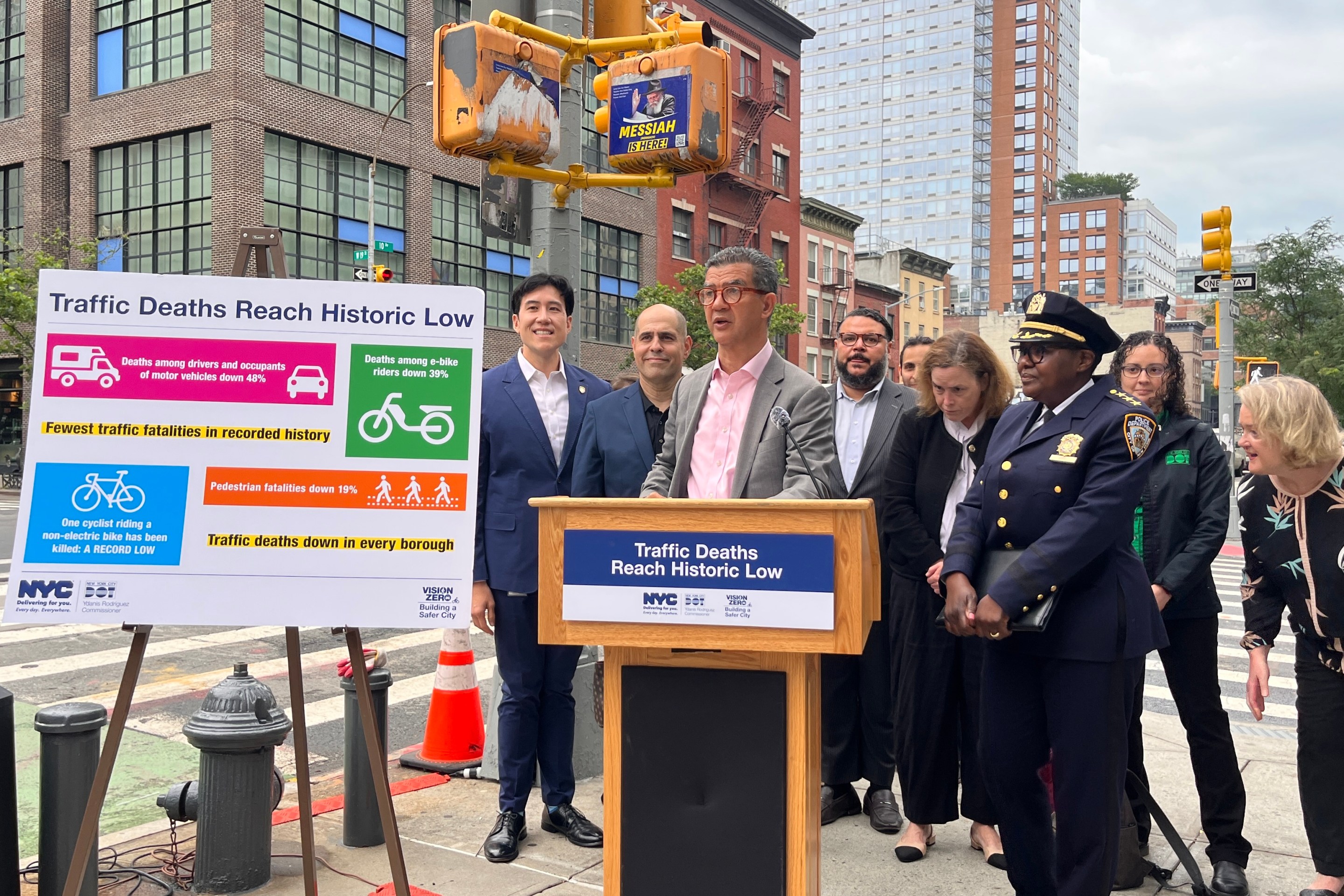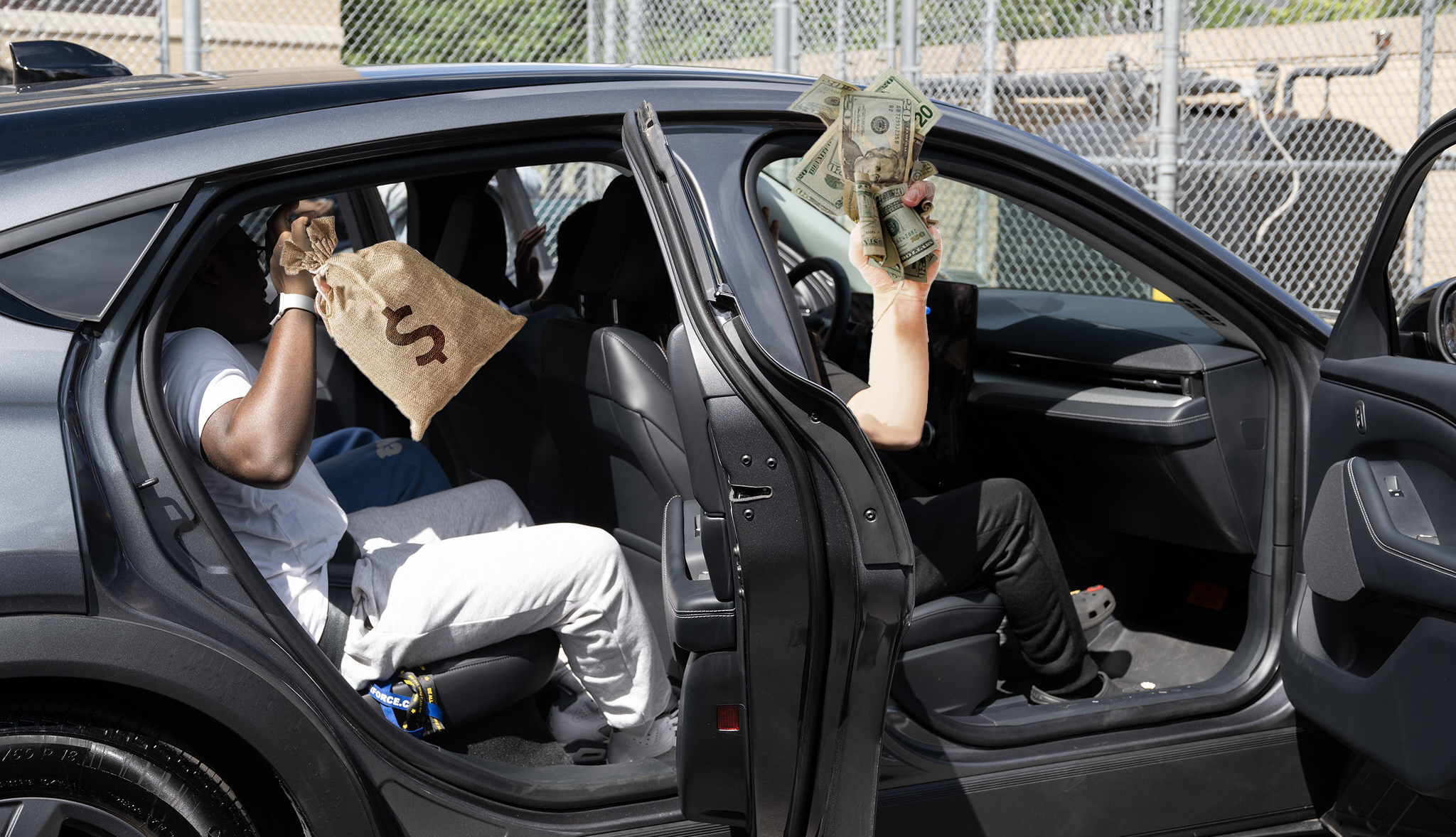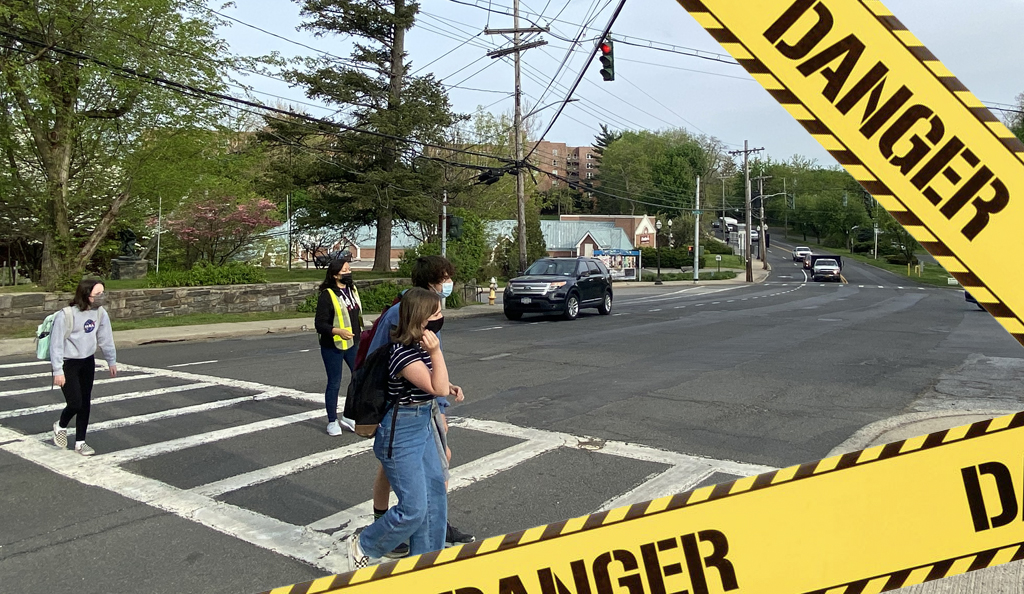During last night's gubernatorial debate, Andrew Cuomo and Cynthia Nixon said nothing about transit and transportation policy that they haven't said many times before. Yet they still managed to put on the most important televised discussion of the MTA among candidates for statewide office in recent memory.
To state the obvious, they had a very low bar to clear. (Remember when the only transit message from politicos in campaign mode was the false charge that the MTA kept "two sets of books"?) And the significance of the debate derived mainly from the dire state of the transit system -- and the urgent need for the governor of New York to turn it around -- not the substance of the discussion.
But the candidates have staked out positions that, unlike the "two sets of books" talking point, will have real policy ramifications in Albany. Let's review what they said.
Who's better on congestion pricing?
If someone had predicted four years ago that one day, two candidates for governor on live TV would try to outdo each other on who can make congestion pricing happen, and that one of them would be Andrew Cuomo answering a question from Marcia Kramer, I would have tried to get that person committed.
But that's exactly what Cuomo and Nixon did in the most significant exchange of the night. While they had both come out for congestion pricing before, saying it out loud in a televised debate both raised the profile of the issue and raises expectations that the winner will actually follow through in the next legislative session. It's on tape, and if a Democrat is the governor next year, advocates will be able to make great use of it.
Cuomo's deception
Immediately after that high point, Cuomo reverted to form and showed why transit advocates find it so difficult to believe him. He insisted that the city owns the subways and should split the cost of any repair-and-upgrade plan, an argument based on a technicality and completely divorced from the very real control that the governor wields over the MTA.
If Cuomo still can't level with voters about his responsibility for the transit system, why should anyone trust what he says about enacting congestion pricing?
Letting public sector unions strike
Unfortunately absent from the debate was any discussion of how to rein in runaway transit costs. The closest proxy was Nixon outlining why she supports repealing New York's Taylor Law, which prohibits public sector unions from striking. Deprived of this tool to bargain with the state, the unions achieve objectives by settling into cozy relationships with elected officials instead, she argued. The broader public is not well-served by the absence of a proper adversarial relationship between public sector unions and the government that employs them.
Look at the backscratching relationship between Cuomo and transit unions and construction unions, and it's hard to disagree.
Here's the whole debate -- continue the discussion in the comments.
